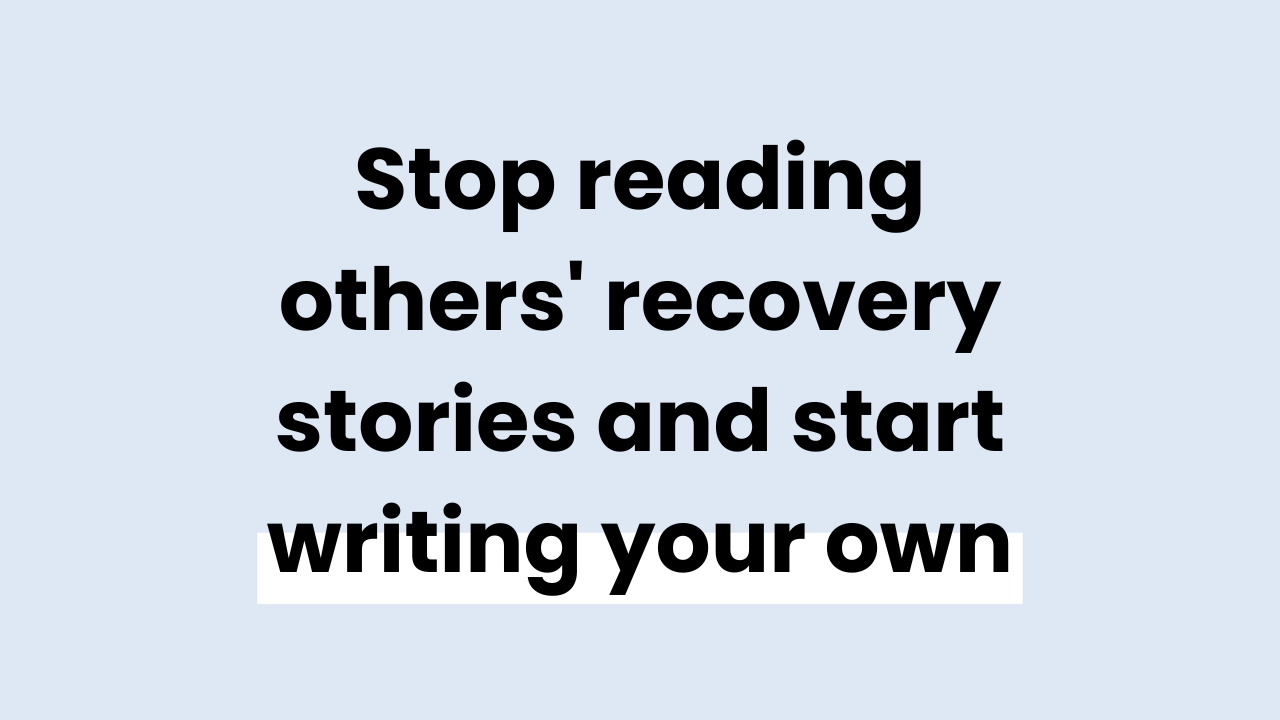Stop reading others' recovery stories and start writing your own
Jun 04, 2021
If you want to learn how to play soccer, you won’t learn it from spending hours watching soccer matches on TV; you learn how to play soccer by playing soccer. It’s the same with recovery. You don’t learn how to recover by watching other people who are recovered. You do the work and invest time and effort into challenging yourself in recovery.
You can buy all the books, read all the blog posts, watch all the YouTube videos, and listen to all the podcasts…but as long as you’re not actively challenging your own eating disorder, nothing will change. Look, I get it. Recovery is scary AF! I wanted desperately to recover for YEARS before I actually made the commitment to really doing so. I thought that if I was “informing” myself of how to recover by drowning myself in other's recovery content, I would magically recover.
But our brains don’t work that way. As much as we wish it did, recovery does not happen via osmosis. You know, the old school trick of putting the book under your pillow and hoping all the knowledge seeps into your brain overnight? Yeah, too bad our brains don't agree with that technique! Our brains are constantly watching our every move, and processing information based on our behavior.

New behavior + repetition = new neural pathways
The only way to create new neural connections in your brain (aka adopting new thought patterns), is to behave in a way that stimulates these new neural connections. So not watching other people’s behaviors, but changing your own behaviors. Here's an example:
You buy a pack of cookies and set them on the table at your house. You watch everyone in your family eat the cookies—your mom, your uncle Fred, your big brother— even the dog catches a couple crumbs! You really want a cookie, but have conditioned your brain to eat an apple instead. So you watch and watch them as they enjoy their cookies and listen to them speak about how delicious the cookies are. Will this obsession with your family’s cookie-eating behavior make it easier for you to eat cookies? Of course not. If you want your brain to believe it’s safe for you to eat cookies, your behavior has to reflect that.

It may seem like a silly example, but it’s hella powerful. EVERY time you engage in an ED behavior, you’re signaling your brain to strengthen an ED neural network. That “short” workout strengthens the exercise compulsion network. “Just skipping one snack" strengthens the restriction network. it doesn’t matter how “minor” the behavior is; your brain sees EVERYTHING. Kinda creepy, huh?
The good news is, that you can always create NEW neural pathways. I like to call them freedom pathways, because literally, they result in FREEDOM! The only way to create these freedom pathways is to behave in the way that a recovered person would. Just as repeating an ED behavior leads to defaulting to that behavior, repeating a recovery behavior will lead to defaulting to that behavior. So behave as the person you want to be. Your brain will watch and learn.
Just as you have to spend hours studying, practicing, and challenging yourself to understand new subjects at school, you have to invest time and effort into challenging yourself in recovery. Just as you can’t expect the contents of your books to seep into your brain overnight, you can’t expect recovered behaviors to simply accumulate by drowning yourself in others’ recovery content. Your thoughts are a direct reflection of the behavior you execute. So if you want to change those thoughts, you’ll have to start changing your behavior first.


